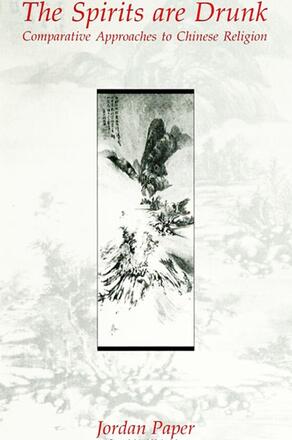
The Spirits are Drunk
Comparative Approaches to Chinese Religion
This is a comparative treatment of the religious beliefs and practices of Chinese traditional culture.
Description
The Spirits are Drunk presents Chinese religion as a complex, singular construct that is the basis of Chinese culture and civilization from its inception to the present. It focuses on the development and role of ecstatic religious experience and on the importance of the feminine in religious perceptions.
Topics include the underlying structure of Chinese religion through the analysis of ritual; interpretations of the ritual decor of protohistoric sacrificial vessels in relation to ecstatic experience; the comparative study of myths and symbols; the development and interrelationships of shamanism, mediumism, and the mystic experience; the role of ecstatic religious experience in the arts and aesthetics; the importance of female deities; female roles in ritual; and the understanding of Christianity and Christian scriptures in China.
Jordan Paper is an Associate Professor in the Religious Studies, East Asian Studies, and Women's Studies Programs at York University, Toronto.
Reviews
"Paper consistently deals with a coherent body of beliefs and practices, pointing out that traditional categories such as the 'three teachings' (Confucianism, Buddhism, and Taoism) obscure the degree to which a common system of belief and practice pervaded Chinese traditional culture.
"The approach taken here is comparative both across time and across cultures. For example, the author's deep understanding of shamanism and related phenomena in a variety of cultural and historical contexts allows him to write about Chinese religion in a particularly illuminating way.
"Even when I don't agree with Paper, he provides me with interesting material to grapple with. The world is full of safe, boring books; here is one that is adventurousand intellectually exciting. " — John S. Major